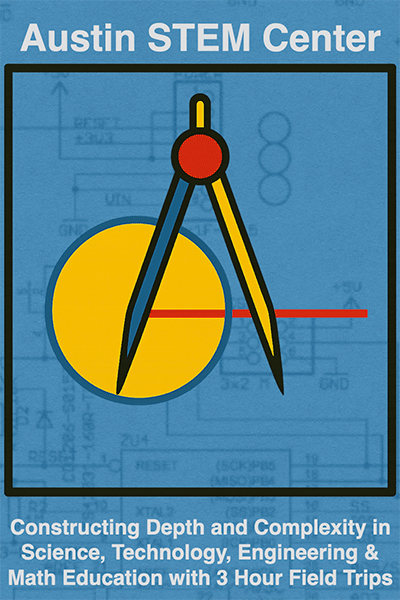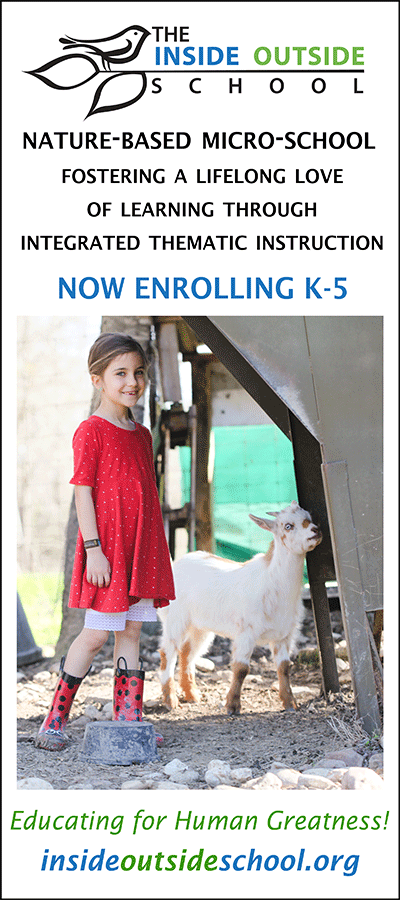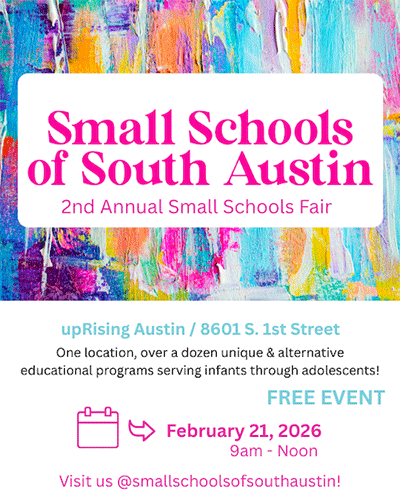College admissions for alternative schooled, homeschooled, and unschooled applicants (Part 1)
/Antonio Buehler is the founder of Abrome, a private K–12 school located in West Austin between West Lake Hills and Bee Cave. Antonio has over 13 years of college admissions experience as an admissions consultant where about 75 percent of his former clients gained admission into a Top 10 school, and about 50 percent of those who applied to Harvard and/or Stanford were accepted. Antonio previously volunteered for the West Point admissions office and currently serves as an alumni interviewer for Stanford University.
Antonio no longer provides admissions consulting services, but as a guest contributor to the Alt Ed Austin blog, he is here to explain the college admissions process from an alternative school perspective. This is Part 1 of his two-part guide, and it’s packed with helpful information for aspiring college students who’ve educated themselves in unconventional ways. Visit the Abrome website to learn more about Antonio and Emancipated Learning, and come back here tomorrow for Part 2.
Today, the Common Application goes live, and with it the college admissions season is once again here. And today, hundreds of thousands of rising high school seniors begin transitioning from the thrill of imagining themselves in a variety of university settings as they flip through college websites and view books to the anxiety of filling out applications and wondering if they will get into a college that is prestigious enough for their parents to place a sticker of that college on the back of the family car(s). While students who were able to opt out of traditional (public and private) schools so that they could go to a progressive alternative school, be homeschooled, or unschool themselves were able to avoid much of the stress associated with the ever-present college admissions arms race that has fully permeated the high school experience, they are often less sure of the next steps forward because they do not have a clear understanding of the application process or how they measure up against other college applicants. This essay serves as a brief primer for these applicants moving forward.
Start Early
Harvard University
Ideally you (or your children) are not applying this year, and instead are planning to apply several years down the road. Those who begin earlier rather than later have significant advantages because they can be more thoughtful about building an interesting and relevant transcript, conduct meaningful research of their target schools, prepare for standardized tests, manage potential recommenders, and endlessly edit their essays until they near perfection. Additionally, those who understand that the college admissions process is a game can turn the game on its head by leading a remarkable life over a period of several years, as opposed to trying to package themselves in the 11th hour (see “It’s a Game” below). Some of this advice will be geared toward those who start earlier, but even those who wait until the summer before applications are due to dive in can benefit from a better understanding of the admissions process and what they can bring to it.
It’s a Game
College admissions is not a meritocracy; it is a game. Sadly, it is a game that weighs heavily on applicants and parents, and it is often seen as a decision that can make or break one’s future prospects. Even more sad is that college admissions decisions have little to do with merit, and much to do with class and privilege. It is essential for applicants to recognize that the college admissions process is not fair, and that the decisions that colleges make in favor or against an applicant have absolutely no bearing on the academic or personal worth of that applicant. Easier said than done. But when an applicant recognizes that college admissions is a game, and they know the rules of the game (and how to hack it), they are more likely to be successful at the game. And an applicant who opts out of traditional schooling has a huge leg up in the admissions game.
Building a Transcript
Stanford University
Hopefully, most young people who are alternatively schooled, homeschooled, or unschooled know that a high school degree is largely worthless. No reputable college or university in the United States requires a high school degree. However, all colleges will want to see a transcript, and this is one area of several where non-traditionally schooled applicants have a sizeable advantage. The time and effort that typical high school students put into their transcripts usually end with a verification that they are hitting all graduation requirements (e.g., 4 math credits, 4 science credits, 4 ELA credits) and a quick calculation to determine which honors and AP classes they should take to boost their GPA relative to their peers. But young people who are responsible for their educational pathways have the opportunity to walk admissions committees through a unique journey that was tailored to the applicant’s needs, goals, and interests. The best way to do this is to celebrate how the applicant spent their time engaged in deep, meaningful, and enduring learning experiences, without trying to conform it to a standard academic transcript (e.g., 4 math credits, 4 science credits, 4 ELA credits).
Additionally, letter grades or percentages are meaningless on a non-traditional transcript unless it shows anything less than a perfect GPA, which would hurt an applicant. Those who opt out of the traditional schooling system should never introduce the rank ordering aspects of grading that pull applicants down. [1]
Standardized Testing
Another benefit of opting out of traditional schooling is that young people get to avoid the relentless testing that is required in the classroom and for the state (e.g., Texas STAAR, New York Regents). Testing serves as a means for lazy politicians, bureaucrats, administrators, and teachers to assess and sort students, at the expense of students. Hopefully, the first time any young person takes a test is if they opt into it for their own benefit, such as taking the PSAT or an AP exam. However, one of the very few downsides to a non-traditional education is that many colleges will lean more heavily on standardized test scores during the admissions process. While the SAT or ACT most often serves as a disqualifier for top private colleges and universities (and as an automatic qualifier for many lower-ranked private or state schools), non-traditional applicants may have a more difficult time overcoming a poor SAT or ACT score than a traditionally schooled applicant who has a perfect GPA and ranks at the top of their class might.
The good news for non-traditional applicants is they should have ample time to prepare for the tests without being burdened by the unnecessary time requirements associated with traditional schooling (e.g., compulsory attendance, mandatory classes, homework, studying, testing). And for those who do not perform well on standardized tests even with plenty of prep, there are now over 900 colleges and universities that do not rely on or require standardized tests in the application process.
It is worth noting that the most exclusive schools also require or “recommend” applicants submit SAT subject tests with their application. Non-traditional applicants should treat SAT subject tests as required if a school “recommends” them, and as recommended if a school “considers” them. Similar to the SAT and ACT, these tests can hurt an applicant’s prospects if the scores are low, but are unlikely to substantially help since so many applicants score in the high 700s or 800 on these tests.
Building a College List
Yale University
Traditionally schooled applicants typically have an easier time than non-traditional applicants in zeroing in on schools to apply to because (1) they are more likely to focus on college rankings as a guide for constructing their list, and (2) based on their class rank and GPA at their particular school, combined with their standardized test scores, they can lean on their guidance counselor or Naviance to help them identify the highest-ranked schools where they have a chance of admission. Unfortunately, this approach results in a high volume of applications to a wide range of schools, lower-quality applications, excessively high rates of anxiety, and very often a failure to identify best-fit colleges.
Non-traditional applicants can more easily overcome the aforementioned challenges because they are more likely to “understand thyself” thanks to years of self-directed learning (or less-coercive schooling) and reflection, and therefore are more likely to be drawn to colleges based on what opportunities and experiences the colleges can provide the applicant in accordance with their needs, as opposed to being drawn to colleges based on their rank. This process will still lead many of these non-traditional applicants to elite, private research universities such as Harvard and Stanford, but others may find that the flagship state school or even starting out at a local community college may be more advantageous for them, while many others may be drawn to liberal arts colleges that are less selective than the elite research universities but that arguably provide the best college education of all.
From a strategic perspective, fewer schools are better than many in the college applications game. By focusing on only the most selective schools as opposed to the best-fit schools, many applicants are driven to apply to upwards of two dozen colleges that may each have single- or low-double-digit acceptance rates. In doing so, they undermine their chances by stretching themselves thin on supplemental essays, applying to schools that their applications will not resonate with, and failing to help recommenders (especially optional recommenders) tailor their letters to a targeted group of schools. Applying to a bunch of schools also costs a lot of money.
Many counselors and consultants recommend applying to 6–10 schools, but we would recommend applying to no more than 5 schools. We have advised applicants to only apply to schools they would be thrilled to attend because of what they could make of the experience, whether it is Harvard, Stanford, State Flagship University, or Directional State U. We highly recommend against applying to “safety” schools as something to fall back to if best-fit schools do not work out. We also recommend against applying to any schools that do not require supplemental essays beyond what is required in the Common Application or Coalition Application, unless the applicant feels that the school is a great fit for their needs. Schools that do not have additional essay prompts often benefit from having large numbers of lazier applicants apply because of the marginal effort required (an application fee), making it more difficult for a non-traditional applicant to drive home their unique story to the admissions committee. [The author of this essay applied to only three universities: West Point for college, Stanford and Harvard for business school, and Harvard for education school. The author has never been rejected and attributes much of this success to being able to submit a near perfect application on the factors that he was able to control or have considerable influence over (e.g., essays, recommendations).]
[Join us back here on the blog tomorrow for more advice from Antonio in Part 2. —Ed.]
1. Grading also undermines the learning process. Any school that grades its students fails its students. There is never a reason for an alternative school to engage in this destructive practice.
Antonio Buehler
















